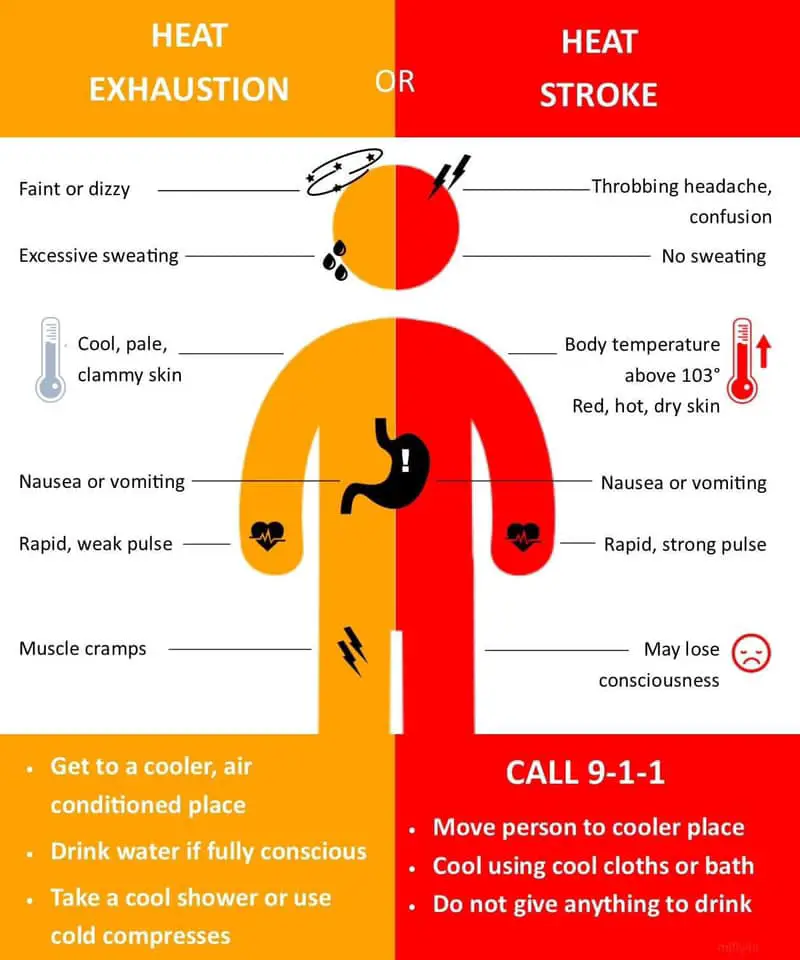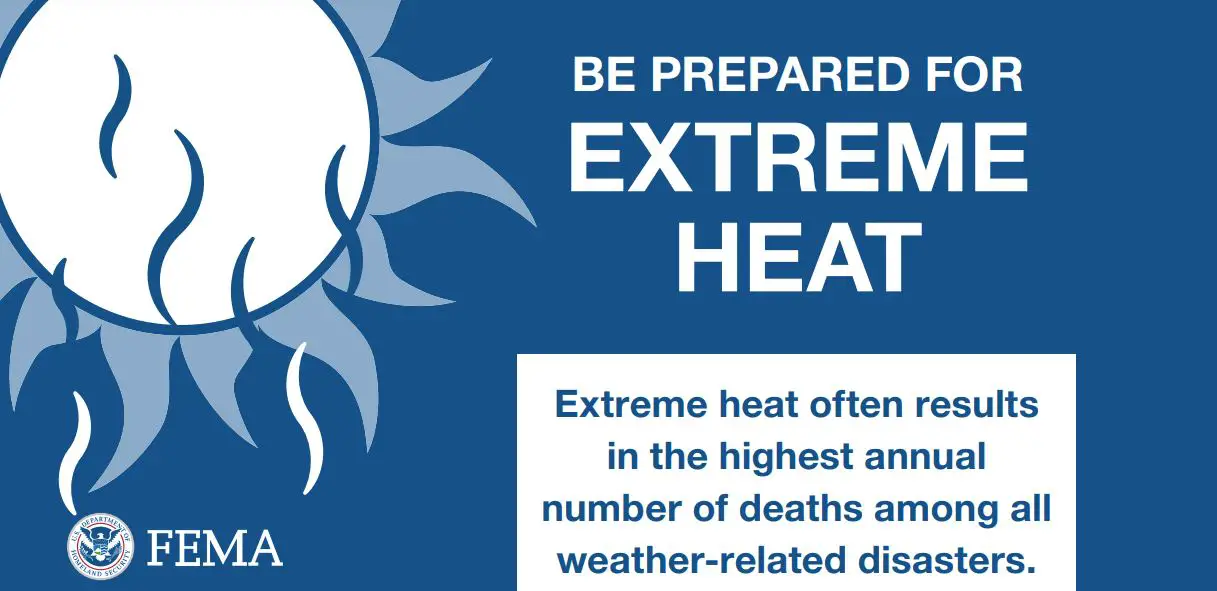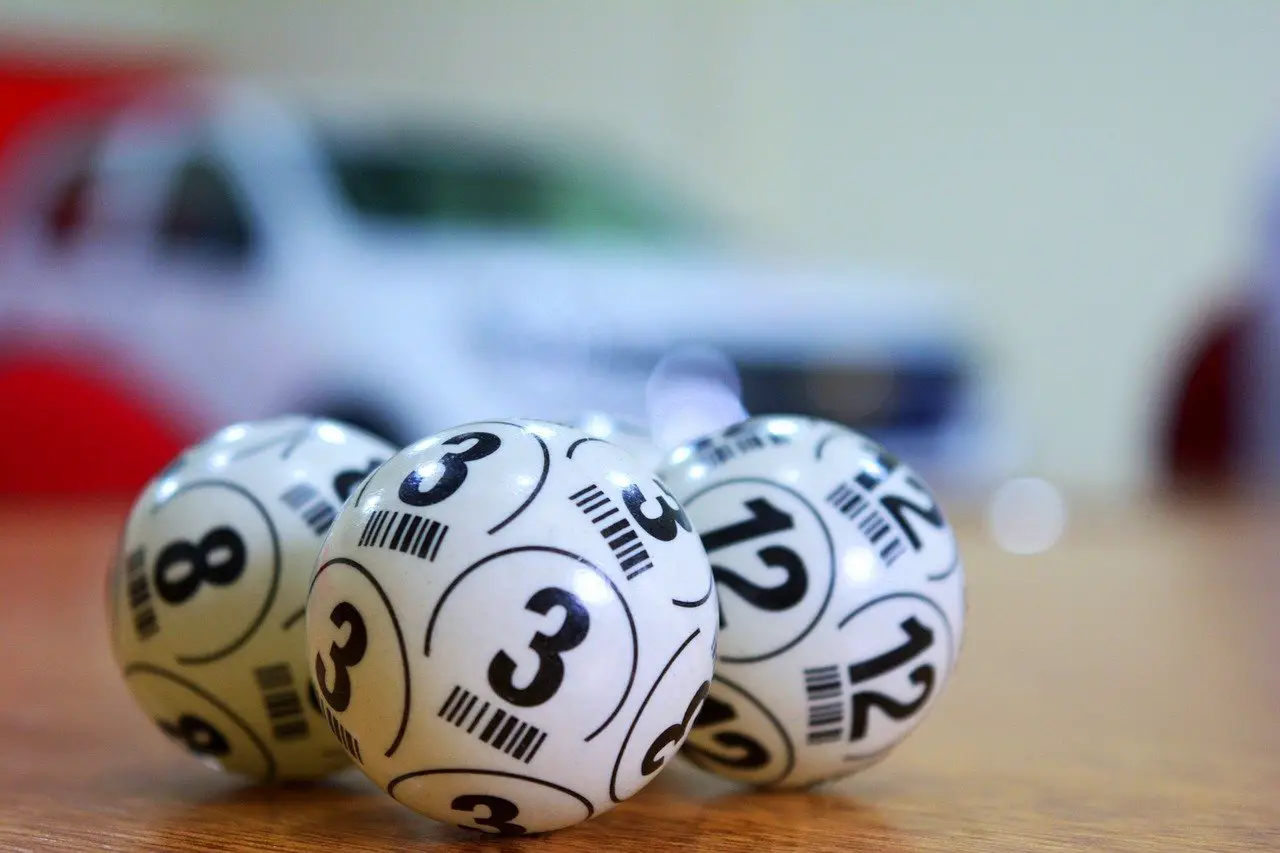The extreme heat we are having in the upper Midwest is unusual for us. As a result, we may be surprised by just how tiring working or playing in triple-digit temperatures is. There is a real potential for heat exhaustion or, worse, heat stroke. Working and living in extreme heat may become the new normal and a health concern.
Table of Contents
What is Extreme Heat?
Extreme heat is defined as two to three days of intense heat and humidity with temperatures exceeding 90 degrees. In excessive heat, your body works overtime to maintain a normal temperature, which might result in mortality. Extreme heat has the most significant yearly mortality toll of any weather-related danger. Extreme heat puts older people, children, and ill or overweight people in danger. Humidity heightens the sensation of heat.
Extreme heat is two to three days of intense heat and humidity, with temperatures exceeding 90 degrees. When it’s too hot, your body has to work harder to keep your temperature normal, which could kill you. Extreme heat has the largest yearly mortality toll of any weather-related danger. Extreme heat puts older people, children, and ill or overweight people in danger. Humidity heightens the sensation of heat.
Preparing For Extreme Heat
Do not rely on a fan as your primary cooling device. Fans create air flow and a false sense of comfort but do not reduce body temperature or prevent heat-related illnesses.
Identify places in your community where you can go to get cool such as libraries and shopping malls, or contact your local health department to find a cooling center in your area.
Sun coming in from windows will heat surfaces. Close your drapes and blinds, or pull down your window shades. You will be amazed at the relief it brings.
Use window reflectors specifically designed to reflect heat back outside. These are the same kind that people use in their cars and trucks. If you have a large window with no way to shade, this is an option.
Use a powered attic ventilator, or attic fan, to reduce the temperature of your home’s attic by clearing out hot air. One trick is placing a box fan pointing into your attic and vent the air from your garage into your attic. This temporary solution will work by circulating the cool air below up into the attic and forcing the hot air out of your attic’s vents.
Install window air conditioners and insulate them around them.
What To Do During An Extreme Heat Day
- Never leave kids or pets in a closed car or truck on a hot day.
- If you don’t have air conditioning in your house, go to a cooling center.
- Bathe or shower in chilly water.
- Wear light-colored, loose-fitting clothes.
- Don’t consume any hot foods or use the oven.
- Take a small towel and get it damp with cool water. Drape it around your neck. It will cool you off.
- Find some shade if you’re going to be outside. Wear a hat wide enough to protect your face.
- Felling hot….wash your hands in cold water. It’s a fantastic trick.
- Stay hydrated by drinking plenty of water.
- If possible, avoid high-energy activities or work outside during the mid-day heat from noon until 5 pm. Take a siesta!
- Check on family members, the elderly, and your neighbors.
- Consider pet security. If they are outside, ensure they have access to cold water and pleasant shade. Asphalt and black pavement can be pretty hot under your pet’s feet.
Is It Heat Exhaustion Or Heat Stroke

Approximately 175 Americans die each year due to overexposure to intense heat. Extreme heat kills by straining the human body to its breaking point. The body’s internal thermostat creates sweat, which evaporates and cools the body under normal conditions. Evaporation is hindered by intense heat and heavy humidity, and the body must work extra hard to maintain an average temperature.
Most heat diseases arise due to the person being overexposed to heat or exercising excessively for his or her age and physical condition. Heat-related crises may necessitate emergency medical attention. To avoid a heat-related emergency, restrict vigorous activity in hot weather. Drink lots of water to stay hydrated, but avoid beverages with alcohol, sugar, or caffeine. If a heat emergency develops, one of the most vital things is to get out of the hot surroundings and cool down.
The featured image is from the City of Columbus, Indiana.



